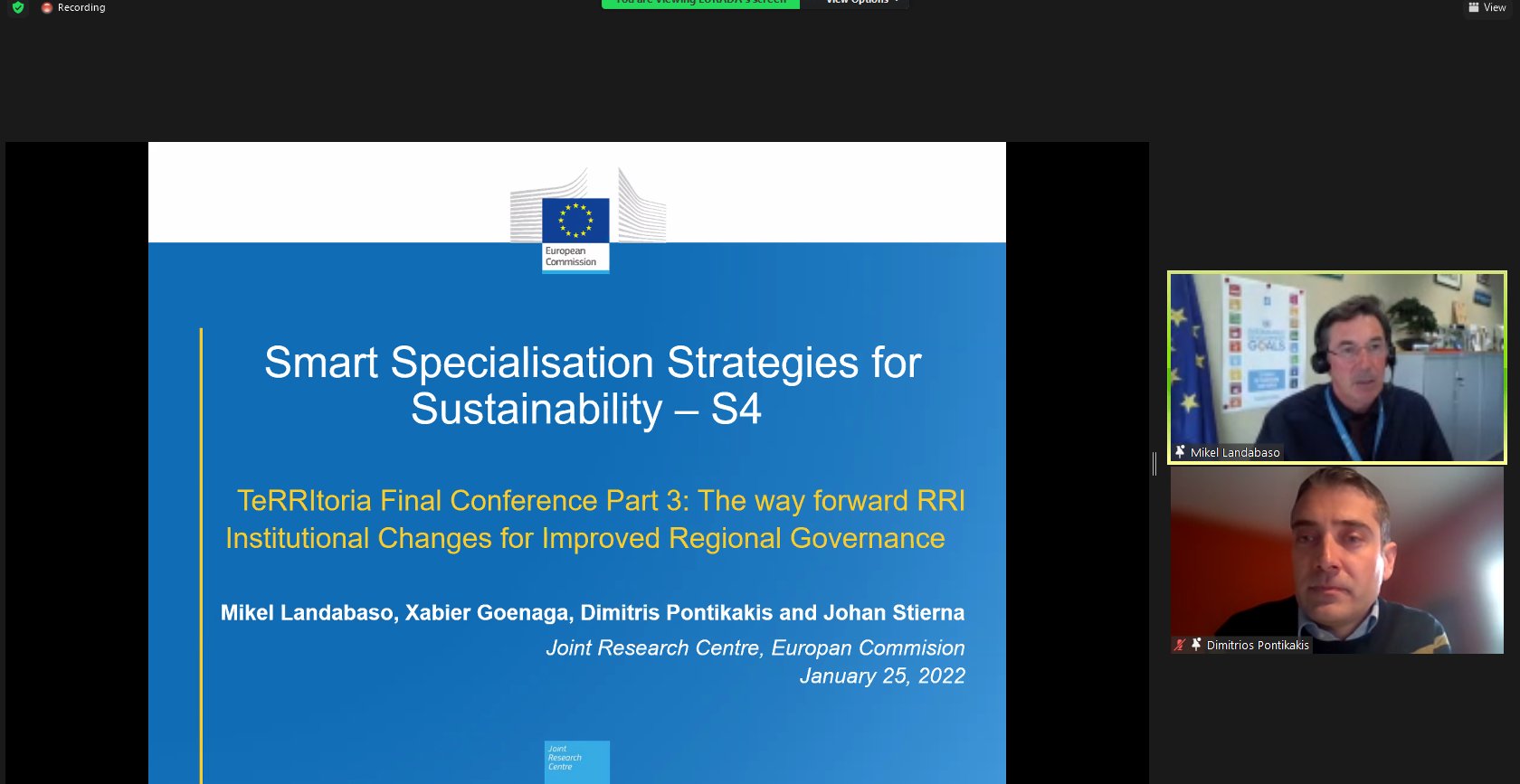Project start in Strasbourg
The European Science Foundation organized the Kick-Off meeting of the TeRRItoria project during the 27th and the 28th of February 2019. The meeting was attended by all the partners and by a representative of the European Commission. It was confirmed the relevance of the project to concretely operationalise Responsible Research and Innovation (RRI) in 5 territories. At the meeting all issues related to the project start, management, finance and various technicalities of the TeRRItoria project were discussed in detail. Participants mostly focused on the activities and methodologies for the implementation of the project results. The partners engaged in technical discussions during the two days and committed themselves to the project tasks as foreseen in the Grant Agreement.
TeRRItoria project is within the programme “Science with and for Society” (SWAFS). The programme supports RRI to facilitate societal actors to co-create scientific agendas and contents aligned with the values, needs and expectations of society.
Knowledge on RRI has already been developed at European level and its concept already found practical implementation in a wide range of territories. For instance, the H2020 project “Monitoring the Evolution and Benefits of Responsible Research and Innovation” (MoRRI) was a project tasked with implementing a monitoring systems for responsible research and innovation (RRI) across its 6 dimensions (gender equality, science literacy and science education, public engagement, ethics, open access/open data), and governance.
TeRRItoria concept
RRI concept was launched by the European Commission in 2011 and later adopted horizontally in the research and innovation programme Horizon 2020. The purpose is to provide inclusive and sustainable research and innovation. RRI involves societal actors for 6 key dimensions: public engagement, open access to research findings, gender, ethics, science education and governance. TeRRItoria project is characterised by territorial RRI.
Major challenges nowadays have to be addressed by both researchers and governments. However, significant trends of scepticism towards scientific approaches and solutions are characterising the public debate (e.g. climate change). The partners of the TeRRItoria project agreed that RRI plays a relevant role to develop consensus and reinforce social acceptance towards a more science-based modus operandi encompassing the 6 six RRI dimensions. The purpose of the project is to implement operationally RRI using the framework of the smart specialisation strategies (S3). RRI is strategically valuable to address societal challenges as it provides a comprehensive knowledge to ameliorate the design and implementation of the S3.
Building of territorial RRI
During the meeting in Strasbourg it was reassured that TeRRItoria project is going to carry out 5 transformative experiments in 4 regions and one municipality. Territorial RRI is a selective and experimental approach that is still not well-known by regional and local governments. In order to make it operationally implemented it should explore synergies with other initiatives also considering smart specialization strategies.
TeRRItoria project will introduce changes in the research and innovation strategies in5 territories. It will generate long-lasting changes in the governance system in the territories with the inclusion of RRI principles. In addition, the project will be focused on the exploitation providing results that could be replicated outside of the 5 territories.
The transformative experiments in the 5 territories will be carried out through a policy dialogue. In order to facilitate their implementation TeRRItoria has divided its work in three strands:
- Analytical strand: gathering all the RRI related initiatives within the 5 territories of the experiments and the mapping of other experiences valuable for the application in the territories. During the meeting in Strasbourg it was clarified how to define the types of useful information, adequate tools for mapping and methods for internal dissemination.
- Reflective strand: the purpose is to make the strategies more citizen centric planning by co-creation of RRI. Key aspect of this part of the project that will start in 2020 is the mobilisation of the stakeholders.
- Proactive strands: practical implementation of the transformative experiments and improving the governance in the five territories. It is critical to face possible resistances and obstacles, using the knowledge acquired in the TeRRItoria project it will guide to produce effective implementation of the transformative experiments
Following the proposal granted, the partners of TeRRItoria project agreed to dedicate attention to S3. The project will improve the quality of formulation of these strategies by involving local ecosystem with the quadruple helix dialogue. The operationalisation will be effective by the implementation of certain elements of 6 RRI key dimensions. During the TeRRItoria project better governance models will be proposed with improved indicators and reliable evaluation. The partners in Strasbourg recognised that TeRRItoria is a timely project because the implementation will occur at the same time of S3 revision for the period 2021-2027.
More Information
- SWAFS Science with and for Society. H2020. European Commission
- Smart Specialisation Strategies. S3 Platform. Joint Research Center. European Commission
- Von Schomberg, R. (2011). Towards responsible research and innovation in the information and communication technologies and security technologies fields. Available at SSRN 2436399.
- MoRRI (2018). Monitoring the evolution and benefits of responsible Research and Innovation. European Commission





